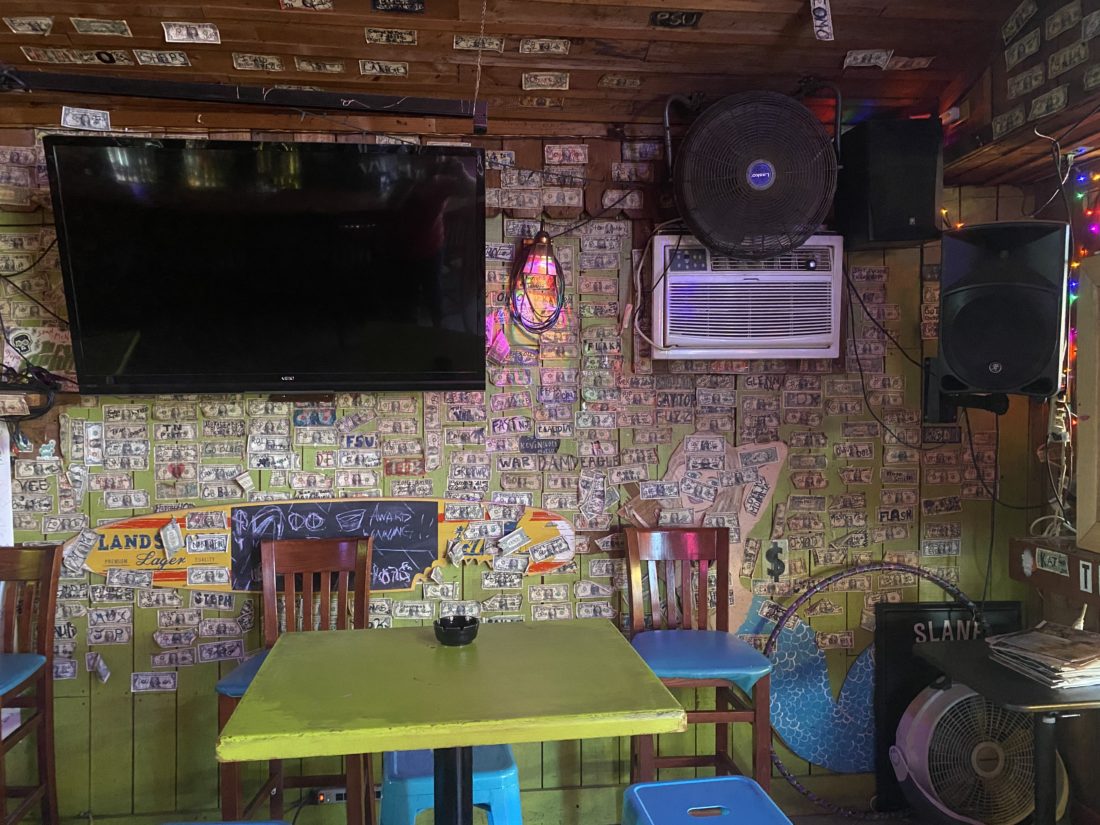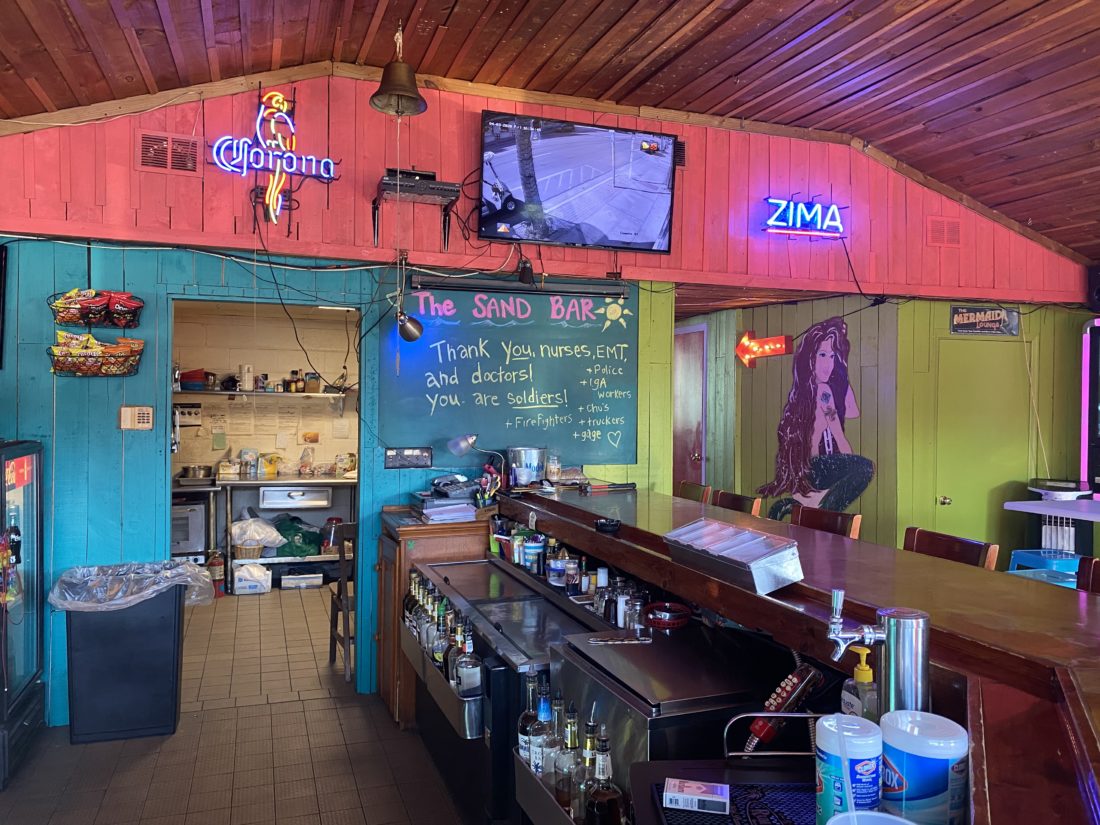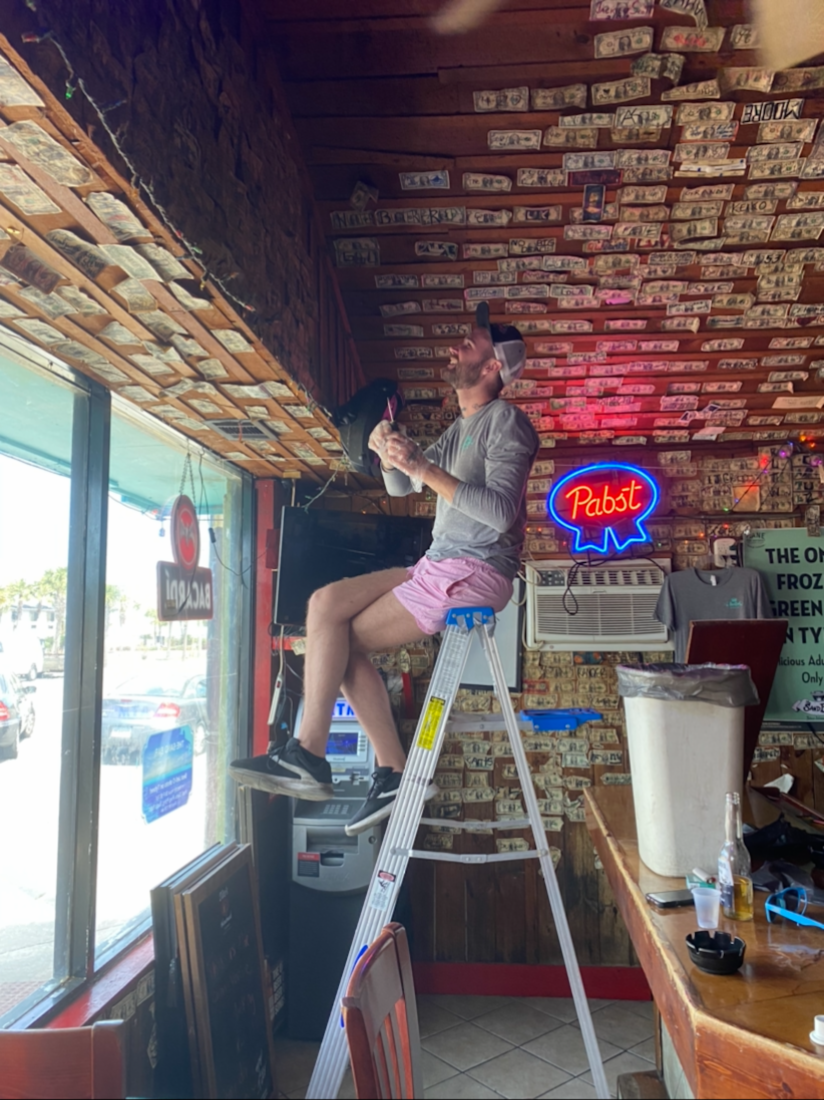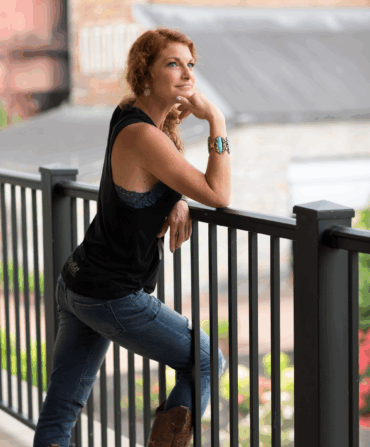The idea came about, as many good ones do, while drinking with buddies at a bar.
It was March 23, and Jennifer Knox, the owner of the Sand Bar on Georgia’s Tybee Island, had just shut down the watering hole, known for the dollar bills affixed to its walls, due to coronavirus. She and a small group of friends were having drinks inside the empty bar (six feet apart) and wondering what they could do to help the suddenly out-of-work employees. Then they realized: The answer was right in front of their faces.
“We literally had money on our walls, and time on our hands,” Knox says. “And we knew we had to get this cash to people who need it.”

Joined by her mother and four volunteers who would accept only pizza and beer as payment, Knox set to work for three and a half days removing the thousands of bills that patrons had stapled to the walls and ceiling over the past fifteen years or more.
“It was a labor of love,” Knox says, “but it was rough.” They were up on ladders, using tiny screwdrivers, pliers, and their fingers to extract the multitude of staples, trying to read the writing on the bills as they came down. “Each one was like a little love note from a customer.”
Their bleeding fingers paid off: The walls held $3,714, which Bank of America counted manually, since many of the bills were too old and delicate to run through a counting machine. Knox divided the money among her employees, giving each of them $600. “Workers in the service industry haven’t received unemployment or stimulus checks,” Knox says. “This money is a game-changer for my people, and I’m forever grateful to the volunteers who helped get the money off the walls.”

Knox’s efforts haven’t gone unnoticed. She’s since set up a Venmo account that has received another $3,000, and her actions have inspired other establishments to take similar steps. At the Cabbage Key Inn and Restaurant in Pineland, Florida, the owners have always collected the bills that fall down and donated them to charity, and now they are giving the fallen bills to a Southwest Florida Emergency Relief Fund that aids those impacted by Covid-19. Hamburger Joe’s in North Myrtle Beach, South Carolina, has stripped its walls and is in the counting process, and manager Richard Brooks hopes to have up to $10,000 to distribute among its employees. The Griffon in Charleston, South Carolina, pulled down some of their cash to pay furloughed staff, and said they’re looking forward to reopening so customers can refill the walls.
As for Knox and the Sand Bar, they’ve cleaned and repainted, and are eager to reopen when it’s safe—but they don’t plan to continue the bills-on-the-walls tradition. “We are trying to think of a creative option for allowing people to leave their mark here,” Knox says, “and it is going to be one that does not require a damn staple gun.”








